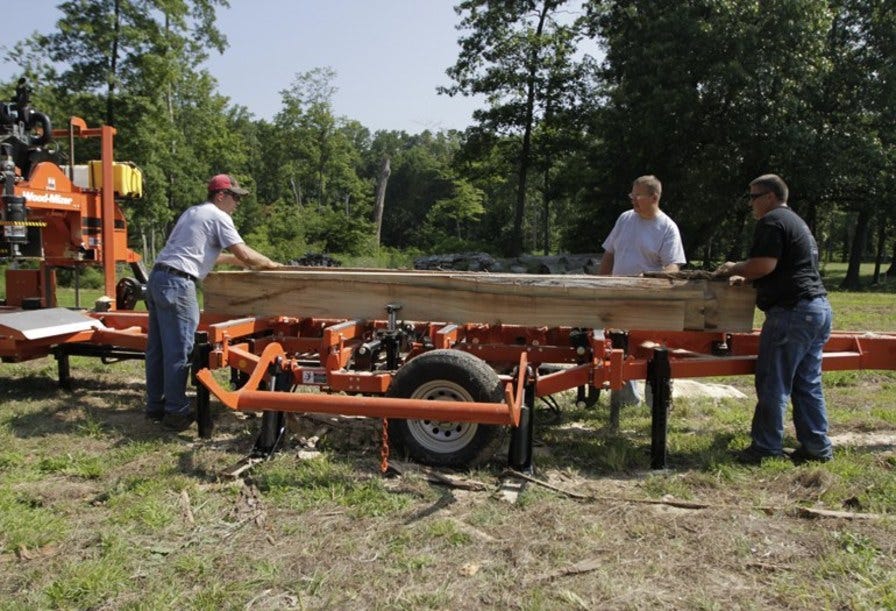How to Charge for Sawing Services
By Wood-Mizer, Canada

There are no limits to the approaches you can use to charge for your sawmilling and custom cutting services. However, the three of the most common methods are to charge by the hour, by the board foot, or by sharing the finished lumber.
By the Hour
The most stable or secure method for pricing for the mill owner is a flat, hourly rate. Rates vary from location to location and range upwards of $100 per hour plus extra charges for travel, broken blades, etc. Pricing on an hourly basis transfers all of the risk of daily output to the customer. It encourages the customer to have his logs clean and easily accessible, and to provide a person to help handle the materials to get the most value for their money.


By the Board Foot
Cutting by the board foot is the most common method used in the industry. This pricing method gives you the ability to make the greatest return in a day, but potentially exposes you to the lowest returns as well. Pricing varies by species and location per board foot so do your research to see what your local mills are charging. This pricing method places all of the risk of productivity on the sawyer since the customer is only paying for the lumber they receive. That is why this method is preferred by a great number of businesses in the industry. Charges for broken blades, cleaning muddy logs, travel, etc. can be set beforehand.
On a Share Basis
One of the most lucrative approaches to charging for custom cutting can be to accept a percentage of the finished lumber from the owner of the logs. In most circumstances, this pricing method is advantageous to both you and the customer. With this pricing method, the customer doesn’t need to pay any money up front to have his lumber cut. The sawmill owner, in many cases, can get significantly more money by selling a portion of the lumber on the open market. Generally, the percentage of shares varies with the species cut.
All three methods have advantages, but the key is to anticipate which method would be the best pricing policy for that specific job. Identifying which pricing method will work best for you will become easier over time as you are exposed to more and more cutting situations.
There are no limits to the approaches you can use to charge for your sawmilling and custom cutting services. However, the three of the most common methods are to charge by the hour, by the board foot, or by sharing the finished lumber.
By the Hour
The most stable or secure method for pricing for the mill owner is a flat, hourly rate. Rates vary from location to location and range upwards of $100 per hour plus extra charges for travel, broken blades, etc. Pricing on an hourly basis transfers all of the risk of daily output to the customer. It encourages the customer to have his logs clean and easily accessible, and to provide a person to help handle the materials to get the most value for their money.

By the Board Foot
Cutting by the board foot is the most common method used in the industry. This pricing method gives you the ability to make the greatest return in a day, but potentially exposes you to the lowest returns as well. Pricing varies by species and location per board foot so do your research to see what your local mills are charging. This pricing method places all of the risk of productivity on the sawyer since the customer is only paying for the lumber they receive. That is why this method is preferred by a great number of businesses in the industry. Charges for broken blades, cleaning muddy logs, travel, etc. can be set beforehand.
On a Share Basis
One of the most lucrative approaches to charging for custom cutting can be to accept a percentage of the finished lumber from the owner of the logs. In most circumstances, this pricing method is advantageous to both you and the customer. With this pricing method, the customer doesn’t need to pay any money up front to have his lumber cut. The sawmill owner, in many cases, can get significantly more money by selling a portion of the lumber on the open market. Generally, the percentage of shares varies with the species cut.
All three methods have advantages, but the key is to anticipate which method would be the best pricing policy for that specific job. Identifying which pricing method will work best for you will become easier over time as you are exposed to more and more cutting situations.

